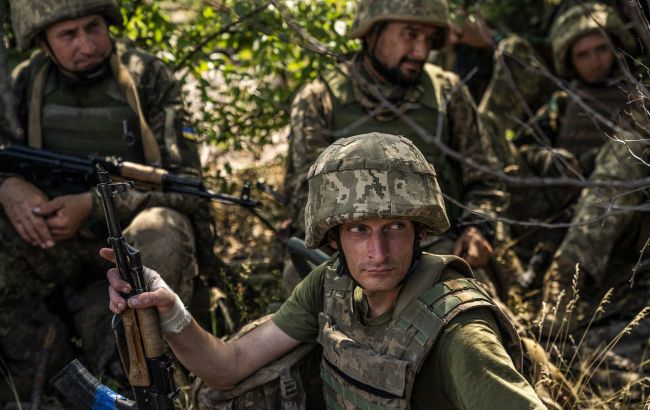Air ceasefire could bring many problems to Ukraine, expert explains
 Photo: expert believes the air ceasefire will bring many problems to Ukraine (Getty Images)
Photo: expert believes the air ceasefire will bring many problems to Ukraine (Getty Images)
The air ceasefire that Russia might propose will bring Ukraine a lot of problems. In particular, because the enemy will have the opportunity to increase the use of ground equipment on the front lines, stated Ivan Tymochko, head of the Reserve Council of the Ground Forces, in a comment to RBC-Ukraine’s YouTube channel.
"This ceasefire will bring us a lot of grief, a lot of problems. First of all, I think, because if fighting on the battlefield does not stop, Russia will have the ability to amass large columns of armored vehicles, a large number of personnel as close as possible to the front line, and move its military supply depots within artillery range,” Tymochko said.
At the same time, the expert is confident that the Russians will set up these supply depots just in the open, 30–40 kilometers away, because they won’t care — drone strikes on the enemy’s rear will be limited.
"It’s not even certain that they will stop air and aviation strikes. So maybe, for example, they will decide to restrict the use of certain aircraft types while using others," he added.
Tymochko explained why Russian President Vladimir Putin is trying to maintain air strikes.
"The thing is, when they carried out missile and drone strikes, their industry and production capacity, their accumulation of resources allowed them to do this on an industrial scale. Now we see that to carry out missile strikes, they increasingly have to spend more time accumulating missiles," the expert said.
Regarding the use of drones, the Russians managed to reach mass-scale launches, but the efficiency rate remains relatively low.
According to Tymochko, this means a small percentage of successful hits on military targets.
"They have placed their bet on drone strikes against the civilian population. There were several calculations. The first is genocide, which I always emphasize. It’s not just terrorism; terrorism is also there, but the basis is genocide. They hoped that we would respond symmetrically," the expert added.
However, Ukraine began striking Russian military targets, especially those responsible for logistics and supplying the enemy army.
"And considering that a huge amount of civilian industry and logistics in Russia is used for the army, especially aviation and transportation, this led to a disruption of all air transport, then strikes on railways, especially on power plants, depots, and junction centers," Tymochko noted.
He stressed that this has started causing interruptions in the movement of Russian military equipment and personnel, as well as civilians.
"On one hand, they don’t suffer physical losses, but on the other, they become an accumulating mass of negativity toward Putin’s regime. Of course, Putin is now trying to remove all these negative factors. Of course, he wants to restore the process of accumulating weapons," the expert added.
Air ceasefire
Yesterday, Bloomberg reported that Russian authorities are considering an air ceasefire with Ukraine. Moscow may take this step to avoid secondary tariffs and sanctions from the US.
Unnamed sources told the publication that the visit of US President Donald Trump’s Special Envoy Steve Witkoff to Russia this week is Moscow’s last chance to reach a deal with Trump, even though the chances of success are low.
Several months ago, Ukrainian President Volodymyr Zelenskyy proposed a phased ceasefire to Russia.
The first step, according to his initiative, was to halt all hostilities in the air and at sea — a complete ban on launching missiles and long-range drones, as well as strikes on energy and other civilian infrastructure.
At that time, Moscow rejected the proposal. Now, if Russia continues to refuse a ceasefire, it faces secondary tariffs and sanctions from US President Donald Trump, who set a deadline of August 8.
The Center for Countering Disinformation emphasized that Russia is trying to push the idea of a so-called air ceasefire while continuing ground combat. Such proposals are a trap, allowing Russia time to accumulate resources.

